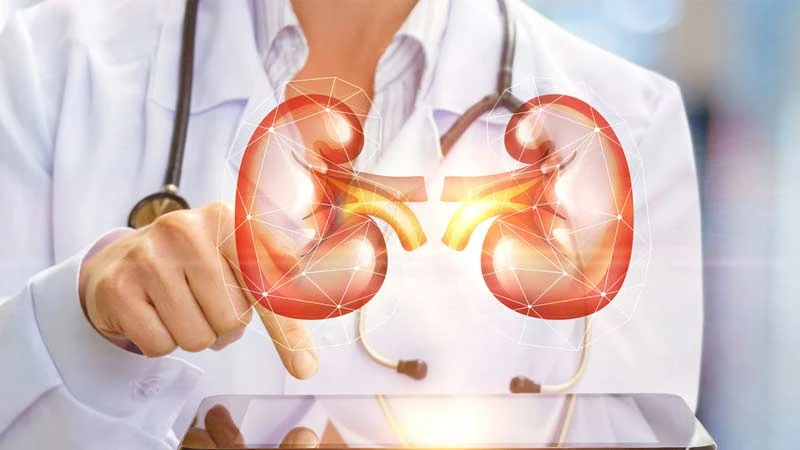What is Urology?
Urology is a medical branch specialized in diagnosing and treating diseases of the urinary tract and urogenital disorders for both male and female urinary tracts regardless of age.
All diagnostic and therapeutic procedures are performed and provided by our expert physicians, and the most qualified nurses and experienced healthcare staff at Avicenna / Atasehir Urology Clinics with the most modern medical techniques.
Moreover, we provide the latest medical diagnostic methods such as laparoscopic surgery, open surgical and endoscopic procedures, cystoscopy, computed tomography, ultrasonography, PSA, and uroflowmetry to obtain the best results of treatments for each patient.
Therefore, this branch focuses on the diseases of the urinary tract, urinary bladder, prostate, and testicles, infertility and impotence in males, and urinary incontinence in females.
Diagnostic Methods in Urology
Laboratory tests
Urine and blood tests are usually used to diagnose urinary tract diseases. As a result of these tests, changes occur in the blood and urine and through which the cause of the disease or infection is diagnosed. Accordingly, the treatment method will be determined. The most requested procedures and tests used to diagnose urinary tract infections in the Urology department include; Sperm analysis, investigation of tumour markers, scanning of bacteria and viruses, analyzing a urine sample, examination of various proteins and enzymes, and creating images of your urinary tract.
Ultrasound Examination
It is one of the most frequently used urology tests for examining the internal systems and organs to observe and detect any problems in the urinary tract, and displaying the results as images through a monitor. However, the ultrasound machine does not cause any harm to the body because it uses high-frequency sound waves.
Moreover, the urology department performs various types of ultrasounds that are commonly used to detect urinary tract issues and diseases such as; prostate cancer, benign prostatic hyperplasia, and problems related to the testicles, kidneys, prostate gland, and bladder.
Urinalysis (Uroflowmetry)
It is a diagnostic method that measures the speed of urination. Also, it measures the amount of urine excreted during urination. and is generally applied to patients who have difficulty urinating. It helps the doctor to identify and determine the causes of several urinary difficulties. Moreover, it is used for the detection of any obstructions in the normal urine flow, by calculating the average rates of the patient’s urine flow to estimate the severity of any obstruction or blockage. Besides, it can detect other urinary issues such as a weakened bladder or an enlarged prostate.
Urology Imaging Techniques
Computerized Tomography (CT) Scan / Magnetic Resonance Imaging (MRI)
CT scan is a type of X-raying that includes a large X-ray machine able to evaluate the urinary tract, including the kidneys, bladder, ureters, trauma related to the urinary system and male reproductive organs, to examine any tumours of the urinary tract and find internal bleeding.
To perform a CT scan, the patient lies down still on a table, then moves through to take cross-sectional pictures at all angles inside the body. Whereby, pregnant women cannot undergo a CT scan due to the high radiation emission.
MRI uses radio waves and magnets that allow imaging of any part of the body using a persistent magnetic field and radio frequencies. CT scans are quite used more than MRIs and are usually less expensive. However, due to the high magnetic field, there should not be any metal objects on the patient during the operation.
It can be preferred by urologists in diagnosing and following up on all types of cancer of the urinary system and male reproductive organs, especially prostate cancer and benign prostatic hyperplasia.
Urodynamics
Urodynamics test studies how well your bladder works and why there could be blockages or leaks. Besides, it examines how the sphincters, urethra, and bladder hold and release urine. This method includes many types of tests. It is performed to diagnose problems and diseases related to urine leaks, Bladder not emptying all the way, Weak urine flow, urinary tract infections, and prostate diseases.
Voiding cystourethrogram (VCUG) X-ray
An X-ray imaging test produces images of the urethra while the bladder empties and fills to examine its working state. The examination requires the insertion of a catheter containing a dye into the bladder.
Therefore, as the bladder fills, X-rays are captured at different times and positions. This test helps to show and detect any abnormalities of the urethra and abdomen. Importantly, it is used for those suffering from a condition called (vesicoureteral reflux) that causes urine to flow in the wrong direction, back up from the bladder to the kidney.
However, If vesicoureteral reflux is not treated at the early stages, it may progress and reach the kidneys and cause serious disease. kidneys and cause serious diseases.
Prostate-Specific Antigen (PSA) test
It is a blood test used to detect any inflammation of the prostate, to help determine the underlying cause, and to screen for prostate cancer. The test measures the amount of PSA in the blood.
PSA is a protein produced by both noncancerous and cancerous tissue in the prostate and is mostly found in semen. In addition, little amounts ordinarily circulate in the blood.
if the test can identify high levels of PSA it may indicate the presence of prostate cancer. However, many other conditions, for example, an inflamed or enlarged prostate, can also increase PSA levels.
The examination can be performed at any time of the day, and it does not require fasting. However, avoid intercourse (sexual intercourse) 48 hours before the examination.
Prostate Biopsy
It Is a procedure in which a piece of suspected prostate tissue is taken and examined under a microscope for any cell abnormalities. A needle is used to collect the tissue samples from the prostate gland under the influence of local anaesthesia.
Therefore, the procedure is performed by a urologist after results from the initial examination, such as a PSA blood test, which indicates you may have prostate cancer. If cancer is present, it is evaluated to determine the best treatment options.
Frequently Asked Questions
What are the services included in Urology Department?
- Kidney diseases (abscesses or secretions of the kidneys, acute pyelonephritis, kidney tumours, kidney stones, amyloidosis).
- Kidney infections in adults and children
- Ureteral stones, ureteral cancer/strictures, and ureteritis in adults and children
- Prostate cancer, benign prostatic hyperplasia (benign growth) and prostate infections
- Urinary incontinence in women.
- Male infertility
- Reconstructive urology
- Laparoscopic surgery and laparoscopic urology
- Pediatric urology
- Testicular cancer, undescended testicle, varicocele
- Abscesses and infections in adults and children
What is the Prostate?
The prostate is a gland that surrounds the urethra and lies below the bladder in men. It is one of the organs that causes most health problems, especially in the elderly. These include an enlarged prostate, prostate cancer, and prostatitis. Each of these diseases is treated separately.
What is Enlarged Prostate?
An enlarged prostate or benign prostate hyperplasia (BPH) is the most common problem of the prostate gland. In general, BPH is most commonly observed in male patients who are age 50 or older. Enlarged prostate blocks the urine flow through the urethra which creates pressure on the urethra. In addition, as the urethra narrows, the bladder has to contract more forcefully to void urine through the body.
Eventually, it leads to cause problems with the bladder, urinary system, or kidneys. However, It includes symptoms such as frequent urination, the feeling of incomplete bladder emptying, the urgency to urinate, and straining to urinate. Medical and surgical treatment options are available for BPH in Avicenna hospital.
How is Urinary Tract Infection Treated?
Antibiotics are generally used as the first-line treatment for urinary tract infections. The prescribed drugs and duration of use depend on the results of the urine analysis, and the type of bacteria found in your urine. However, if not treated, the infection in the urinary tract can spread to the kidneys and worsen over time. Nevertheless, the symptoms include a burning sensation when urinating, persistent urge to urinate, bloody urine, or pelvic pain in women after urinating.
What doctor should I see for kidney stones?
A urologist and specialist in kidney stone surgery should be visited to diagnose and treat kidney stones. Due to the possibility of using surgical methods to treat large stones.
How are kidney stones treated?
The kidney stones treatment is determined by the size, location, and type of the stones. Drinking water as much as 1.8 to 3.6 litres a day will keep the urine dilute and may prevent stone formation. In addition, treatment of large stones may require different methods, such as sound waves to break up large stones, the use of an endoscope to remove stones in the ureter, or removing kidney stones through the skin, via open surgical intervention.
In which hospital can I find a woman urologist?
The Urology Department at Avicenna / Atasehir Hospital includes Dr. Aisha Fehurda Dikkman as a woman urologist. Besides, Avicenna Hospital ranks as one of the best hospitals in Istanbul for patients looking for urologists.
How is the urinary tract examined?
The urinary tract is examined either through the previously mentioned methods, which include analysis of urine, urine culture, and image creation or through an endoscopy.







